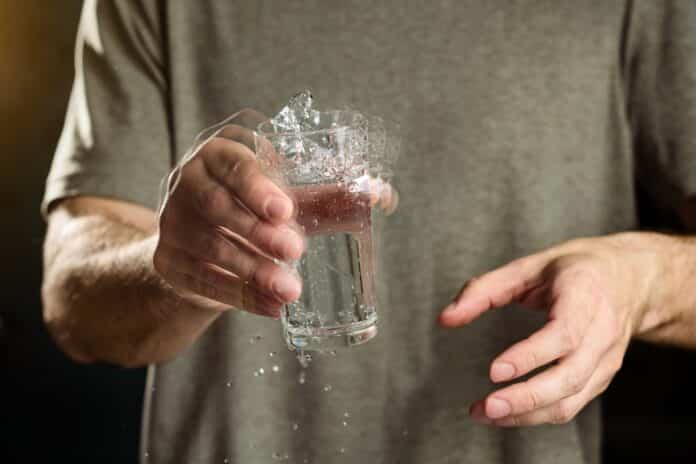
Across cultures and eras, water has been revered, embodying life, purity, and transformation in folklore and mythology.
This liquid, as clear as crystal and as nourishing as the earth’s bounty, is a powerful symbol representing the very essence of existence.
Water, whether falling as rain from the heavens or bubbling from the earth as springs, has always been the giver and sustainer of life. This reverence has etched deep-seated beliefs in our minds, shaping our perceptions of the importance of water to our own lives and health.
But when it comes to our health, how do these age-old beliefs align with modern science?
Myth: Everyone Needs 8 Glasses of Water a Day
It’s a common belief that everyone should drink at least eight 8-ounce glasses of water a day, often referred to as the “8×8 rule.” However, this figure is not exactly backed by scientific evidence.
Health guidelines typically recommend a daily total water intake between 2.7 and 3.7 liters per day, but this includes all beverages and food. Actual water needs can vary based on factors like activity level, climate, and overall health.
Fact: Water Can Help Control Calories
While drinking water doesn’t magically induce weight loss, it can contribute to a healthier diet. Water is a calorie-free alternative to beverages high in sugar and fat. Some research suggests that drinking water before meals may help you feel more full, leading to reduced food intake.
Myth: Drinking Extra Water Leads to ‘Detoxification’
While water does play a role in carrying waste products out of the body, there’s no scientific evidence to suggest that increasing water intake improves ‘detoxification’. Your kidneys, liver, and other organs are responsible for this process, and they function optimally under normal hydration conditions.
Fact: Hydration Affects Energy Levels and Brain Function
Dehydration can impact your mood, memory, and cognitive function. Studies have shown that even mild dehydration can cause feelings of fatigue, reduced alertness, and concentration problems.
Myth: Bottled Water is Always Better Than Tap Water
Not necessarily. In many developed countries, tap water is rigorously tested and must meet strict health and safety standards. While bottled water is a safe alternative when clean tap water isn’t available, it’s not inherently ‘better’ or healthier. Plus, it comes with environmental concerns due to plastic waste.
A Britta or Pur water filter is generally recommended for removing any unwanted contaminants that may be in your tap water.
Fact: Drinking Water Can Help Prevent Kidney Stones
Increased water intake can dilute the minerals and salts that form kidney stones, making them less likely to crystallize. While water alone may not prevent kidney stones in people with a high predisposition, it is a beneficial preventative measure.
Myth: Yellow Urine is a Sign of Dehydration
While urine color can sometimes reflect hydration status, it’s not a foolproof measure. Certain medications, vitamins, and health conditions can also affect urine color. The best way to know if you’re well-hydrated is by assessing how often you’re thirsty and how frequently you need to urinate.
Fact: Drinking Water Can Help Maintain Skin Health
While water is not the fountain of youth, staying well-hydrated ensures that your body functions optimally, including your skin. However, water intake won’t erase wrinkles or fine lines, contrary to some claims.
Myth: You Can Never Drink Too Much Water
Excessive water intake can lead to a dangerous condition called hyponatremia, or water toxicity, where the balance of electrolytes in your body is disrupted by a large increase in fluids. This condition is rare but can be serious.
Fact: Not All Beverages Hydrate Equally
While it’s true that all beverages contribute to your hydration status, they are not all equally hydrating. Water is the most efficient hydrator and is calorie-free. Beverages with high amounts of caffeine or alcohol can have diuretic effects, potentially causing more fluid loss. Drinks high in sugar, like sodas and fruit juices, can lead to increased calorie intake without quenching your thirst.
Myth: Sports Drinks are More Hydrating Than Water
Sports drinks are marketed as an optimal hydration solution, especially during intense physical activity. While they do contain electrolytes and carbohydrates that might benefit professional athletes or those engaged in prolonged, intense exercise, for most people, the high sugar content can outweigh the benefits. Plain water remains the best hydration source for most individuals.
By aligning our actions with scientific facts about drinking water and other beverages, we can make informed choices that contribute to our overall well-being.
Whether you’re an athlete reaching for a drink during an intense workout, or you’re simply sipping a beverage at your desk, understanding the hydration properties of your chosen drink can impact not only your thirst but your overall health.


















